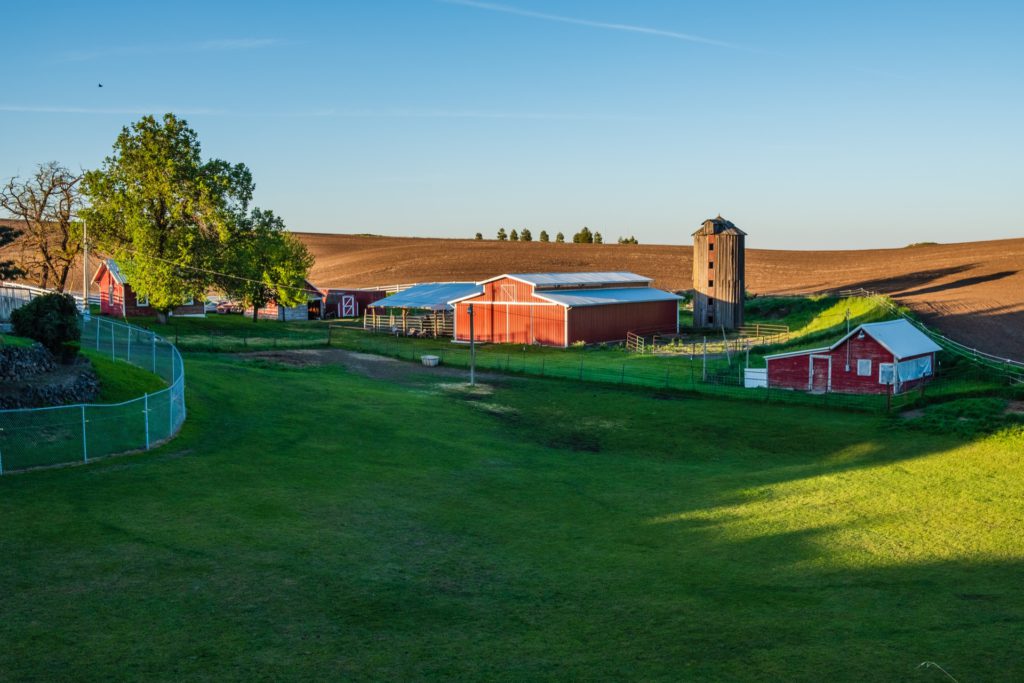Farm Inheritance and Succession in Alberta

We like the image of a lone farmer perched on his tractor, lost in a sea of wheat, working the land and producing healthy crops year after year. But farming is so much more than just making hay when the sun is shining. Just like a farm needs solid planning to yield good crops, farmers need to plan for its succession – not just handing the keys of the old Massey-Ferguson to your oldest son.
Family and business can be a difficult mix, so most families tend to push off these business conversations, like discussions of inheritance and succession. Nothing good grows from pushing these discussions back, and if you leave it too late, succession not only gets more difficult, but can become so costly the inheritors might even need to sell the family farm.
Farm Inheritance and Succession Depends on Proper Planning
Nothing you do, from your crop choice to your hiring, is accomplished without careful thought, and this should go double for your farm inheritance plan. It’s a complex matter and should be thoroughly thought through, preferably with the help of a professional. The more time you give yourself to iron out the details, and get everyone else on board, the smoother the transition from generation to generation will be.
Although there is no inheritance tax here in Canada, there are still many considerations to take into account.
Dave Cesmystruk, a chartered accountant in Calgary, tackled the complexity of succession in his article, Transitioning the Family Farm.
According to him, the most important considerations to include when you are planning the transition into succession are:
- Determining the farm’s overall value
- The transferor’s retirement plan
- Prudent business planning
- Transition of employees, key, or otherwise
- The dealings of non-farming versus farming children
- Overall tax considerations
Often, if the transfer is done without any real planning beforehand, the inheritor ends up with extra costs, like capital gains taxes. However, fees like these can be eliminated or reduced with proper estate planning. But it’s not just business that can go sour if there is no conversation beforehand. Inheritance is difficult at the best of times, and when succession and inheritance haven’t been planned for, it can do damage to more than just business relationships.
Not only is it important to have a professional by your side to point out the possible repercussions of your decision, but it’s equally important to have access to a neutral party throughout these discussions, which will help negotiations go smoothly.
Families Who Work Together, Stay Together
Farmers don’t just give birth to farmers. Some of the kids will want to move to the big city to become (gasp) lawyers. Often though, some of the children will want to continue the family business. But just because some of the kids went on to a different career doesn’t mean they completely want to let go of the family farm.
Everyone in the family must work together planning for succession, but before that happens, they need to agree on an end goal that is palatable for everyone involved. Not only do you have to include all siblings who may want to continue farming (or who have an emotional connection with the farm), but you have to include employees, especially those who are helping to make decisions.
From Succession to Inheritance
Nothing happens overnight, and that includes the transfer of your farm over to the next generation.
With an intelligent succession plan, the inheritor, the family, and the employees of the family farm grow into this new ownership, ensuring near-seamless operation from generation to generation. This will alleviate stress on everyone involved, and make sure squabbles don’t disrupt or delay the daily operations.
Finding an Advisor to Help Your Succession Succeed
Succession is complex, with a variety of factors that never stay the same from one farm to the next. We always recommend farm owners seek help in succession management, and seek it early. You may feel like you have lots of time, and we’re hoping you do, but putting off these decisions, and these conversations will never make it easier, or your estate-planning any safer.
At Alger Zadeiks Shapiro LLP, we’ve spent many hours with farmers in Southern Alberta. We’ve seen how positive good succession planning can be, but we’ve also seen the other side, where inheritors who have come into a new farm don’t seek out the advice they need, only to have their succession be more a burden than a boon. Don’t let your lack of planning drag down the next generation.
Seek help early and set out an intelligent succession plan – you won’t regret it, and it may just keep your farm in the family for generations to come.
Frequently Asked Questions
Q: What is the difference between succession and inheritance?
A: Succession: The gradual transfer of the MANAGEMENT of the farm assets from one generation to the next. Inheritance: The legal transfer of the OWNERSHIP of the farm assets from one generation to the next.
Q: Is there inheritance tax on farms?
A: No, however there are other possible expenses like a capital gains tax.
Q: Who is entitled to inheritance of a farm?
A: Any family member, including grandchildren or even great-grandchildren.
Q: How do you divide a family farm?
A: There are a variety of ways. The farm can be parceled up equally, with one or more renting land from their siblings to farm. Or, one heir can agree to purchase the whole farm, the proceeds of which would be split equally amongst all the siblings.
Q: Who is involved in farm succession planning?
A: Everybody. The inheritor, the family, and even the farm’s employees.
Q: What is involved in farm succession planning?
A: There are a number of elements to consider when planning for succession. They are listed above.
Resources:
- http://www1.agric.gov.ab.ca/$department/deptdocs.nsf/all/agdex7236
- https://retirehappy.ca/estate-planning-for-the-family-farm/
- http://www.moneysense.ca/save/taxes/taxing-the-farm/
- http://www.mnp.ca/en/posts/transitioning-the-family-farm
- http://www.mnp.ca/en/posts/solving-the-farm-succession-puzzle-takes-teamwork
- https://www.canada.ca/en/revenue-agency/services/tax/individuals/topics/about-your-tax-return/tax-return/completing-a-tax-return/personal-income/line-127-capital-gains/transfers-capital-property/examples-common-transfers.html
- http://www.albertabusinesslawyer.com/farm-inheritance.htm
